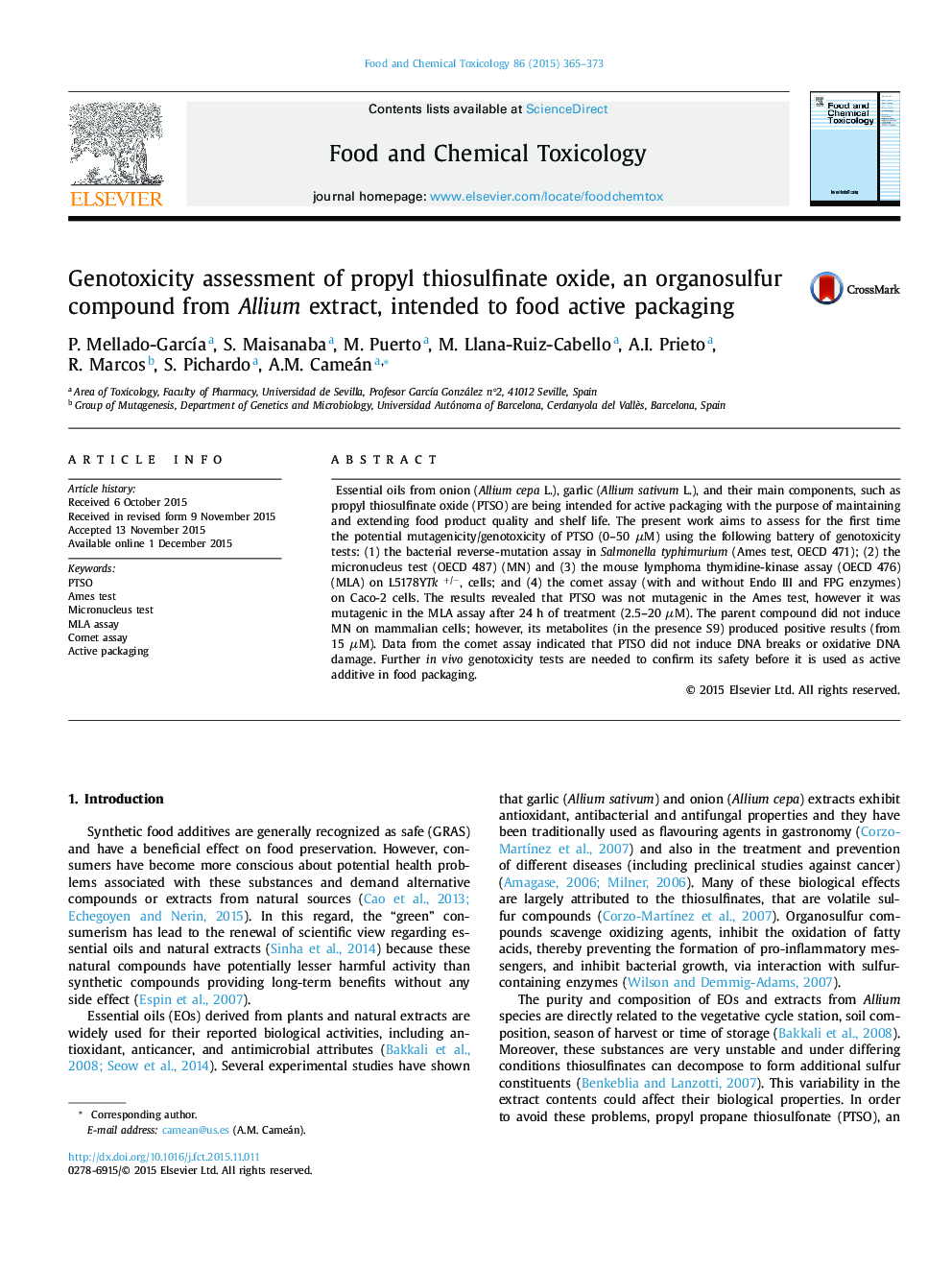| Article ID | Journal | Published Year | Pages | File Type |
|---|---|---|---|---|
| 5849627 | Food and Chemical Toxicology | 2015 | 9 Pages |
â¢Mutagenicity of PTSO was not observed by the Ames test.â¢PTSO induced micronuclei at the highest concentration (20 µM) with S9.â¢PTSO showed mutagenic potential by MLA assay after 24 h.â¢PTSO did not generate DNA strand breaks in the comet assay.
Essential oils from onion (Allium cepa L.), garlic (Allium sativum L.), and their main components, such as propyl thiosulfinate oxide (PTSO) are being intended for active packaging with the purpose of maintaining and extending food product quality and shelf life. The present work aims to assess for the first time the potential mutagenicity/genotoxicity of PTSO (0-50 µM) using the following battery of genotoxicity tests: (1) the bacterial reverse-mutation assay in Salmonella typhimurium (Ames test, OECD 471); (2) the micronucleus test (OECD 487) (MN) and (3) the mouse lymphoma thymidine-kinase assay (OECD 476) (MLA) on L5178YTk+/â, cells; and (4) the comet assay (with and without Endo III and FPG enzymes) on Caco-2 cells. The results revealed that PTSO was not mutagenic in the Ames test, however it was mutagenic in the MLA assay after 24 h of treatment (2.5-20 µM). The parent compound did not induce MN on mammalian cells; however, its metabolites (in the presence S9) produced positive results (from 15 µM). Data from the comet assay indicated that PTSO did not induce DNA breaks or oxidative DNA damage. Further in vivo genotoxicity tests are needed to confirm its safety before it is used as active additive in food packaging.
